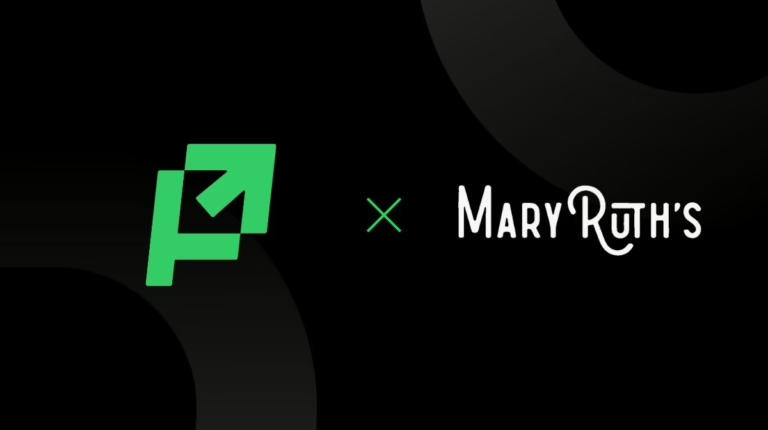Edited to include post-treatment window results. The final overall results show that AppLovin’s incremental impact was even stronger than previously reported. See bottom of this page for details.
MaryRuth Organics makes a global product line of vitamins and supplements for all life stages, empowering people worldwide to take control of their health. The company was founded in 2014 by certified health educator, culinary chef, and nutritional consultant MaryRuth Ghiyam. After facing personal hardships—including the sudden passing of her father and brother, and her mother’s battle with a brain tumor—MaryRuth became deeply committed to helping others take control of their health through simple, accessible nutrition.
MaryRuth only crafts products she and her family personally take, and has built a leading nutrition brand around that authenticity. Today, MaryRuth Organics, or “MaryRuth’s,” products are sold primarily through Amazon (the brand’s largest sales channel) and its website, and are also available through retailers like Ulta and Whole Foods.
Running campaigns on AppLovin’s ad platform
The team at MaryRuth’s aimed to diversify its digital marketing and reach more customers. Having built consumer trust over more than a decade by delivering high-quality products, it was important that MaryRuth’s ads appear in contexts that align with the brand.
They partnered with AppLovin to run ads in mobile games, kicking off Day 0 CPP and ROAS campaigns designed to drive same-day purchases. To broaden their reach, they also launched Day 7 campaigns to capture shoppers who spend more time considering a purchase. In-platform reporting revealed strong ROAS and customer acquisition costs on par with their previous top channels, such as Meta.
Measuring impact with 3rd party measurement solutions
Like many omnichannel brands, MaryRuth’s leverages Prescient AI—a leading marketing mix modeling (MMM) platform—to measure, forecast, and optimize paid media performance. While AppLovin campaigns generate direct responses, they also drive top-of-funnel awareness that will eventually lead to conversions—critical insight that traditional click-based measurement fails to capture. Prescient AI measures the direct impact and the indirect “halo effect” that channels and campaigns have on each revenue stream (ecommerce, Amazon, retail stores), then provides recommendations to allocate spend for better results.
Using Prescient AI, MaryRuth’s uncovered the full value of its AppLovin campaigns, including their influence on Amazon sales beyond direct attribution. The Prescient platform calculated an AppLovin MMM ROAS of 2.7x for MaryRuth’s and revealed that 87% of Amazon sales tied to AppLovin campaigns were driven by halo effects.
“When we got AppLovin data into our MMM with Prescient, we saw a pretty significant results lift. AppLovin’s halo effect on Amazon sales was very large, taking our average 30D ROAS up about 300%. This seemed accurate because it also reflects what our customers say in our post purchase survey—the largest cohort of new customers say they interact with an ad and then don’t buy for at least 1-3 months, hence the apparent LTV increase over time. This was a reason why we felt it’s a good time to do the incrementality test.”
– Wyatt Lowe, Vice President of Growth
Reinforcing results with an incrementality test
Riding the wave of early successes, MaryRuth’s partnered with Haus, a self-serve platform that helps brands configure regional test-and-control experiments to isolate and measure true incrementality. With Haus, MaryRuth’s designed an incrementality test—covering both DTC and Amazon—to validate AppLovin’s lift across the funnel.

The core test question was: What is the impact of AppLovin on omnichannel sales? Haus helped the team at MaryRuth’s design a GeoLift test to measure the incrementality of AppLovin across total omnichannel sales. The test ran at the state level with a 30% holdout and used Shopify Total Gross Sales as the primary KPI. It was structured as a 4-week experiment from March 27 to April 23, 2025 with an additional 2-week post-treatment window to capture any delayed or lagged conversions.

The incrementality test revealed that AppLovin drove a 4.89% lift in DTC sales for MaryRuth’s, with an incremental ROAS (iROAS) 49% higher than their target. On Amazon, MaryRuth’s saw a 1.84% lift in total gross sales. Combined, MaryRuth’s achieved a DTC + Amazon Total Gross Sales iROAS of 4.03x.
Strong performance results from both the Haus incrementality test and always-on MMM from Prescient AI confirmed AppLovin as a highly effective driver of both DTC and Amazon sales for MaryRuth’s. The unified insights gave the team confidence to scale into the channel, increasing their investment on AppLovin’s platform by 40%.
“Our test with Haus validated that AppLovin is driving truly incremental purchases, with an incremental ROAS that meets our goals. AppLovin is now one of our largest digital marketing channels, contributing significantly to both DTC and Amazon sales. As we continue to scale with AppLovin, we are seeing the same exceptional results.”
– Wyatt Lowe, Vice President of Growth
This case study has been updated to include post-treatment window results. The final overall results show that AppLovin’s incremental impact was even stronger than previously reported:
DTC iROAS driven by AppLovin was 49% better than MaryRuth’s goal (previously reported: 40%)
AppLovin drove a 4.89% lift in DTC sales and a 1.84% lift in total gross sales (previously reported: 4.6% and 1.06%, respectively)
MaryRuth’s achieved a DTC + Amazon Total Gross Sales iROAS of 4.03x (previously reported: 2.92x)






